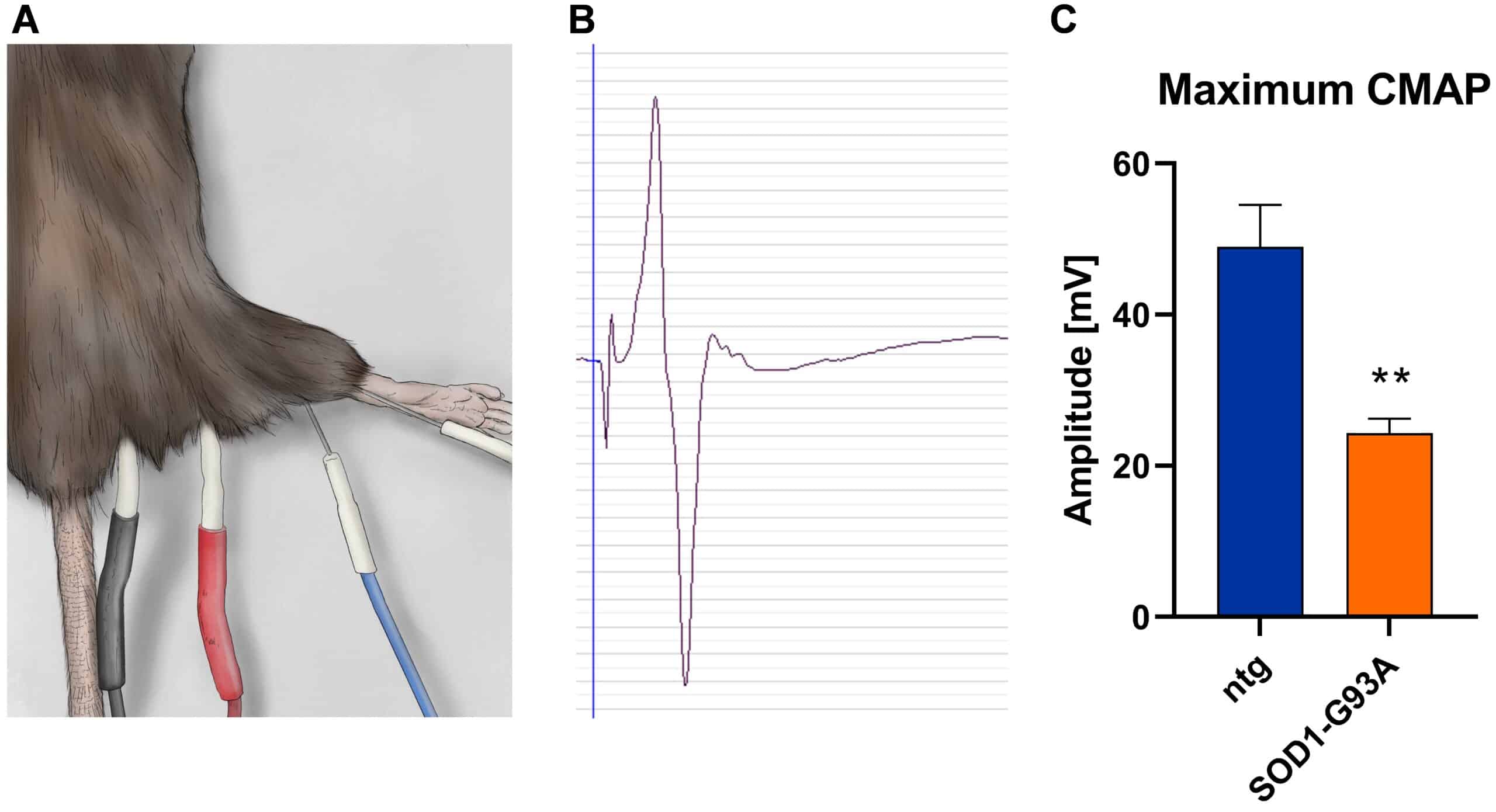Compound Muscle Action Potential (CMAP) is an electromyographical (EMG) method to measure the peak action potential generated by a muscle of interest. Through stimulation of the corresponding nerve, a finely tuned apparatus can measure the electrical signal that propagates through the muscle as it contracts, called the action potential. Supramaximal stimulation of the motor neurons that lead to the muscle allows for evaluation of the peak action potential that can be generated by a given muscle. The corresponding waveform can then be analyzed for various characteristics. Changes can reflect the loss of motor axons, decreased speed or asynchronism of signal transmission along the nerve, or muscle weakening and are therefore directly relevant to neurodegenerative diseases like amyotrophic lateral sclerosis and even Alzheimer’s disease and lysosomal storage diseases such as Pompe disease.

Figure 1: Compound muscle action potential (CMAP) in gastrocnemius muscle of SOD1-G93A mice. A: Examples of placement of electrodes to record CMAP in gastrocnemius; B: resulting waveform; C: maximal CMAP amplitude of SOD1-G93A mice. Unpaired t-test. n = 8 per group. Mean + SEM. **p<0.01.
In addition to CMAP, Motor Unit Number Estimation (MUNE) can be a vital tool for the diagnosis of early denervation. A motor unit (MU) is the complex of a motor neuron with all its connected muscle fibers, with each MU having a separate activation threshold, thereby allowing for finely tuned muscle contraction. Stimulation of the motor neurons at submaximal levels, with steady increases between pulses, allows for activation of individual MUs and calculation of the average threshold difference between them. This in turn enables the estimation of the total amount of MUs in a muscle of interest. MUNE can be relevant for early diagnosis of neuromuscular diseases such as amyotrophic lateral sclerosis and spinal muscular atrophy, where initial loss of motor neurons can be masked by reinnervation of muscle fibers by other motor neurons, leading to unchanged CMAP but decreased MUNE.
